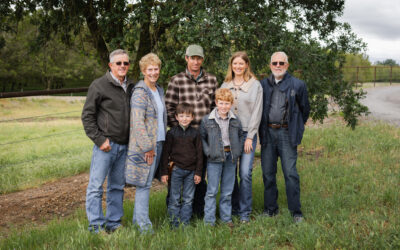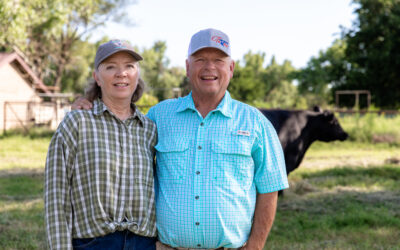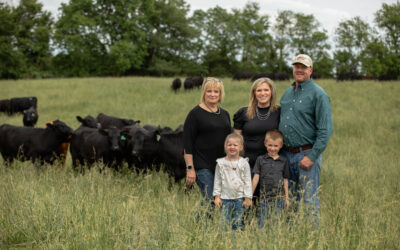
Not just a carcass program
I asked Doug Stevenson as he and Sharon showed me around their Columbus, Mont., ranch. The way he half-smirked, thought for a mere second, then chuckled and glanced back at his wife, gave him away.
“Maybe I ought to let her answer that.”
Sharon’s response? A laugh that told me I hadn’t quite pegged the reason behind Basin Angus Ranch’s steady march toward raising bulls that are consistently in the top 10% for both $W and $B.
Then it hit me. Patient and disciplined aren’t always synonymous.
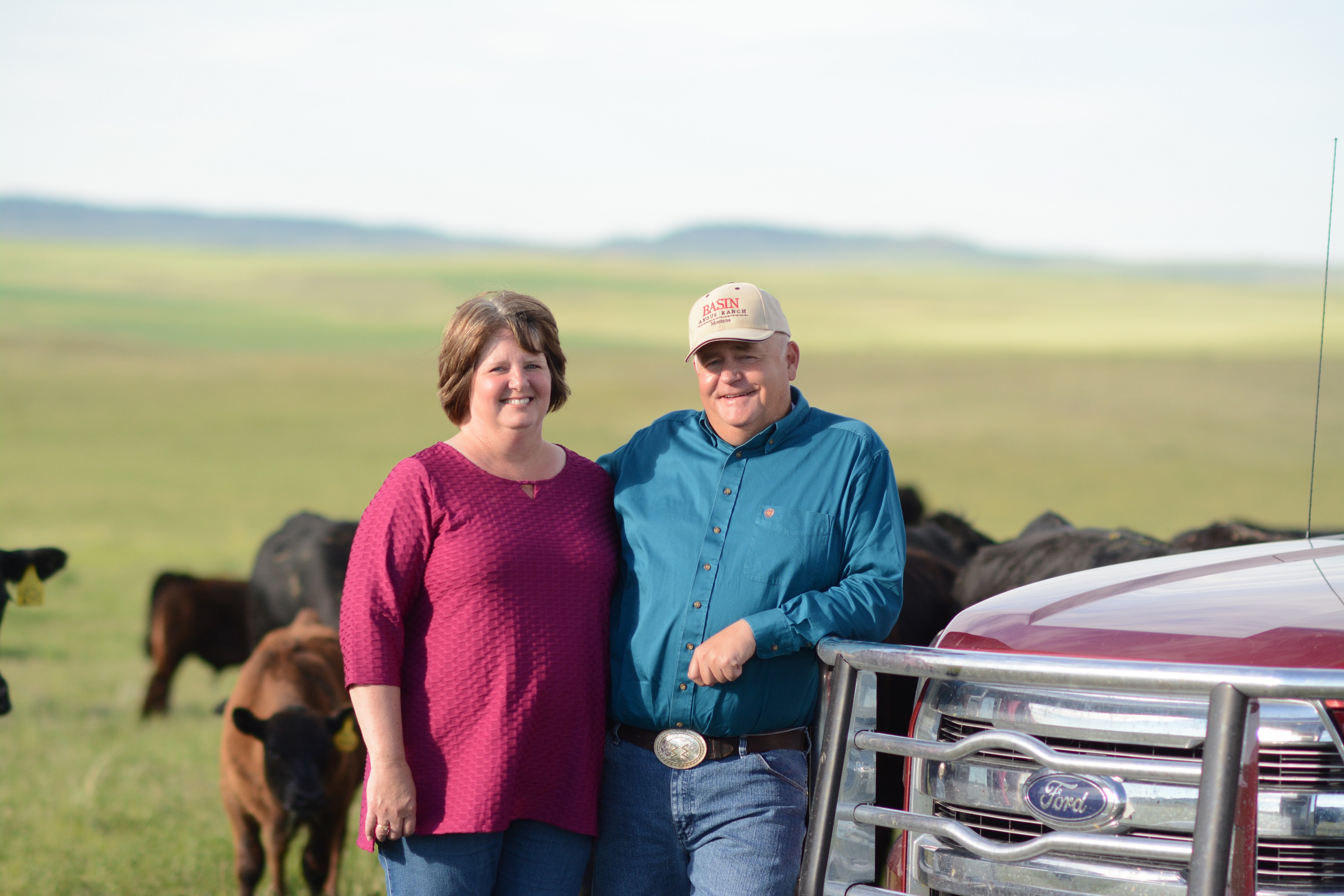
“Rather than going for extreme, we make sure the cattle do everything else right and then pick the best you can for the traits you’re trying to improve,” Doug says. “It’s been a long-term approach. We’ve been very fortunate to end up with some cattle that rank at levels that most people would call extreme on the carcass traits, but we didn’t do it by chasing the extremes.”
Methodical. That title fits.
A self-proclaimed “data freak,” Doug anxiously awaits the Friday morning American Angus Association updates each week.
He uses that and anything else available—like carcass data from cooperator herds and DNA testing nearly every head—to produce bulls that fit range environments, create females with staying power and steers with carcass quality worthy of premiums.
“We can’t give up on making a quality product,” Doug says. “The biggest increases we’re going to see in demand for Angus beef are all from areas where price of the product is a lot less important than quality of the product.”
As the sun went down over the Crazy Mountains, lighting the Absaroka and Beartooth ranges to the south in an orange glow, we talked about the most influential sires and dams in their program. I heard stories of growing up in the Judith Basin, raising three daughters on the ranch and about making hard decisions.
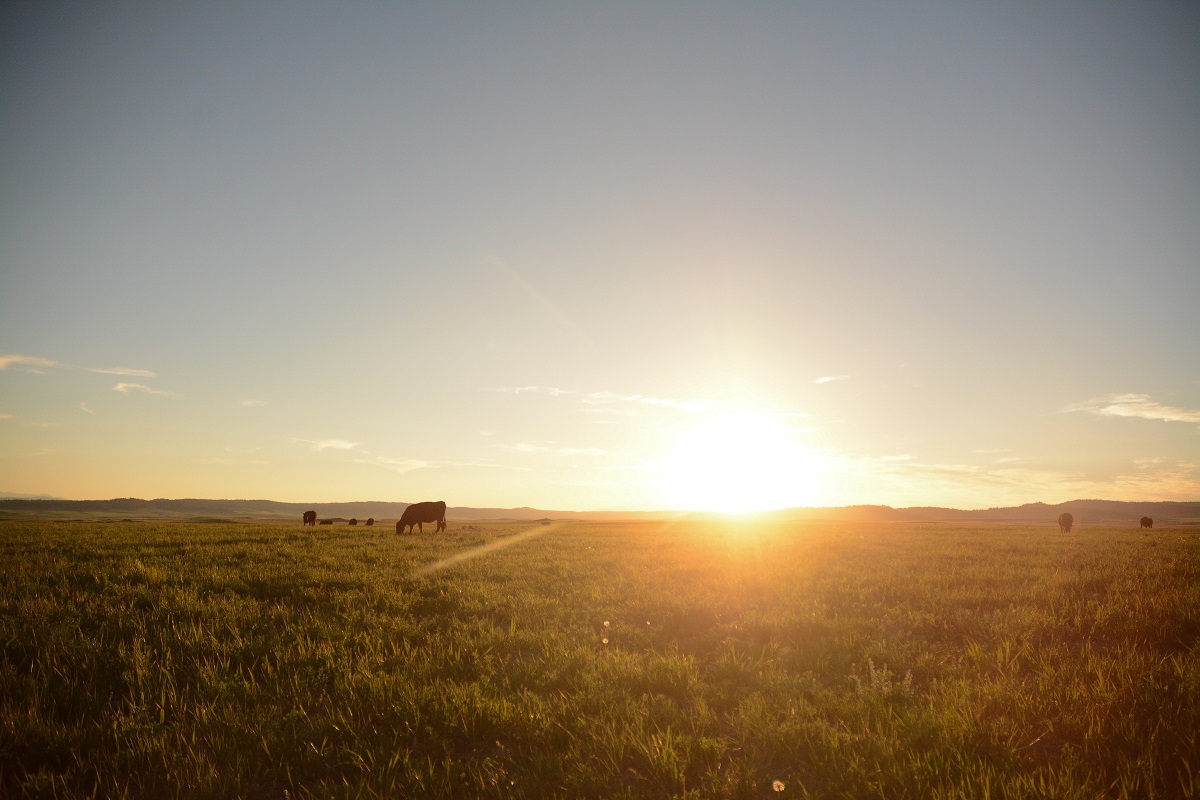
It was then that I knew these people were as good as the cattle I’d already heard so much about.
We talked about selling animals and the land that the family had worked so hard for—almost too hard—and how Doug anticipated a career in consulting. Then he saw that “last” crop of embryo calves in a cooperator herd, and it wooed him back to breeding some of the best.
“I realized I had what I’d been working my whole life for,” he says. “I knew we had some things that were going to be able to have a real impact in the breed.”
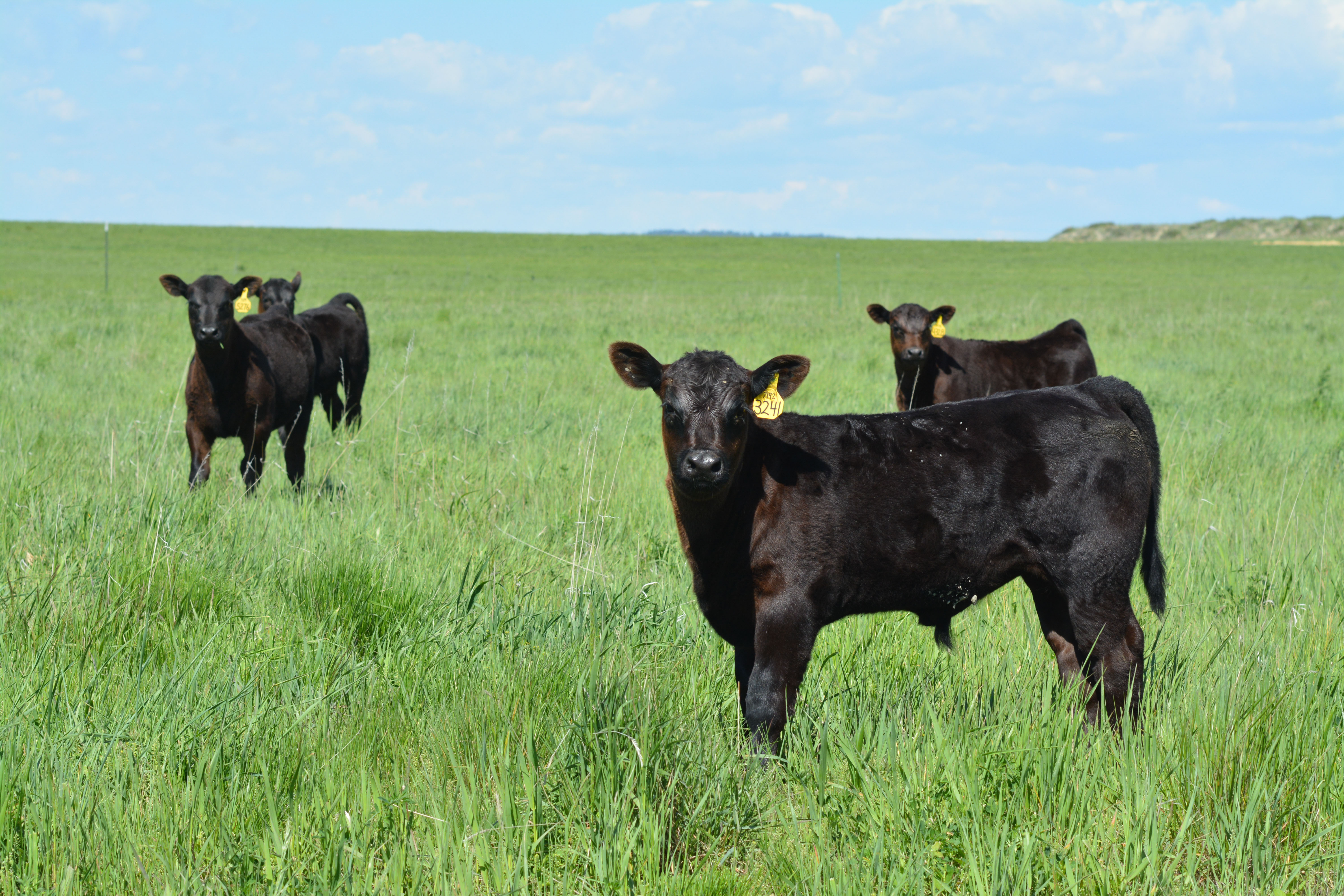
I’m not patient by nature. Perhaps that’s why I look for that trait in others, to see if I can learn from them. But really, it’s life experiences like my trip to eastern Montana this spring that help me practice it.
It’s been almost five months since I jumped in the pickup and crisscrossed pastures looking for the perfect shots. I visited the family because they are our 2017 Seedstock Commitment to Excellence honoree, but I couldn’t share that tale with the world until they walked across our annual conference stage in Nashville to accept the award.
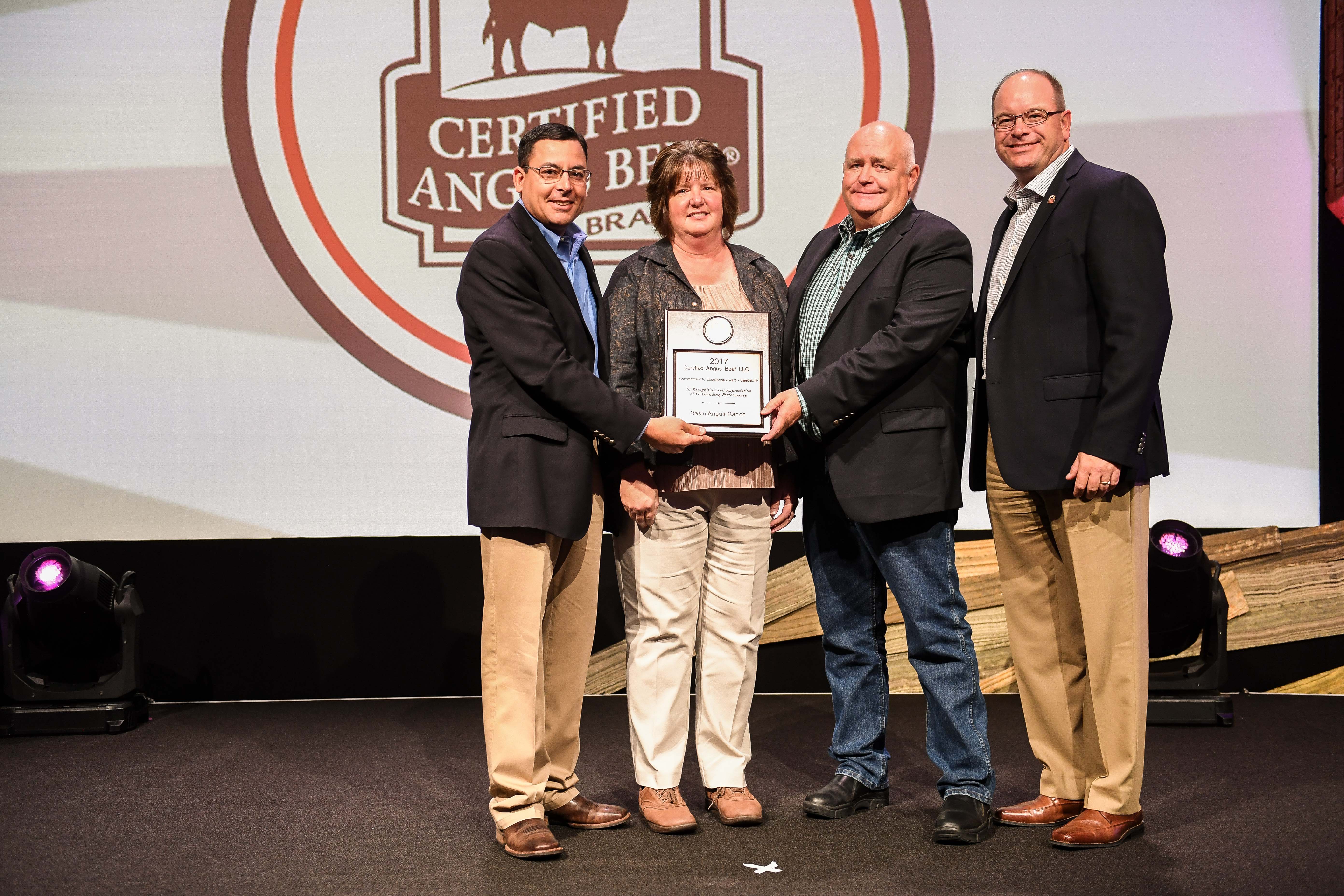
As they did, I was proud of them. Not because I had anything to do with the Stevensons getting their moment in the spotlight, but because I got a small glimpse of all it took to get there.
Steady, methodical, unwavering commitment to excellence.
May your bottom line be filled with black ink,
Miranda
PS–Check out the October Angus Journal to get “the rest of the story.”
You may also like
Legacy in the Golden Land
On a quiet stretch of Northern California rangeland, a different story unfolds. The Borror family’s legacy modestly speaks through the cattle they raise, the ground they steward. The generations who’ve made a life here demonstrate commitment to doing things right, even when no one is watching.
Helping Hands, Helping Herds
“When I die, I want to come back as one of your cows,” murmurs a friend to Steve Zybach. Full to the brim from an alfalfa ration every day, bountiful fields of lovegrass stretched out across the Texas Panhandle—and owners who leave no ounce of cattle care up for question. The Zybachs’ motivation for this level of dedication to their Angus cattle is simply love.
An Ambassador for All
Joanie, with daughter Lindsey and her husband, Adam Hall, raise registered Angus cattle with two primary goals: producing high-quality seedstock that perform well in a wide variety of environments and ensuring end-user satisfaction. Those goals tie everything together, from promoting Angus to other producers to sharing their story with CAB partners and beef consumers.

